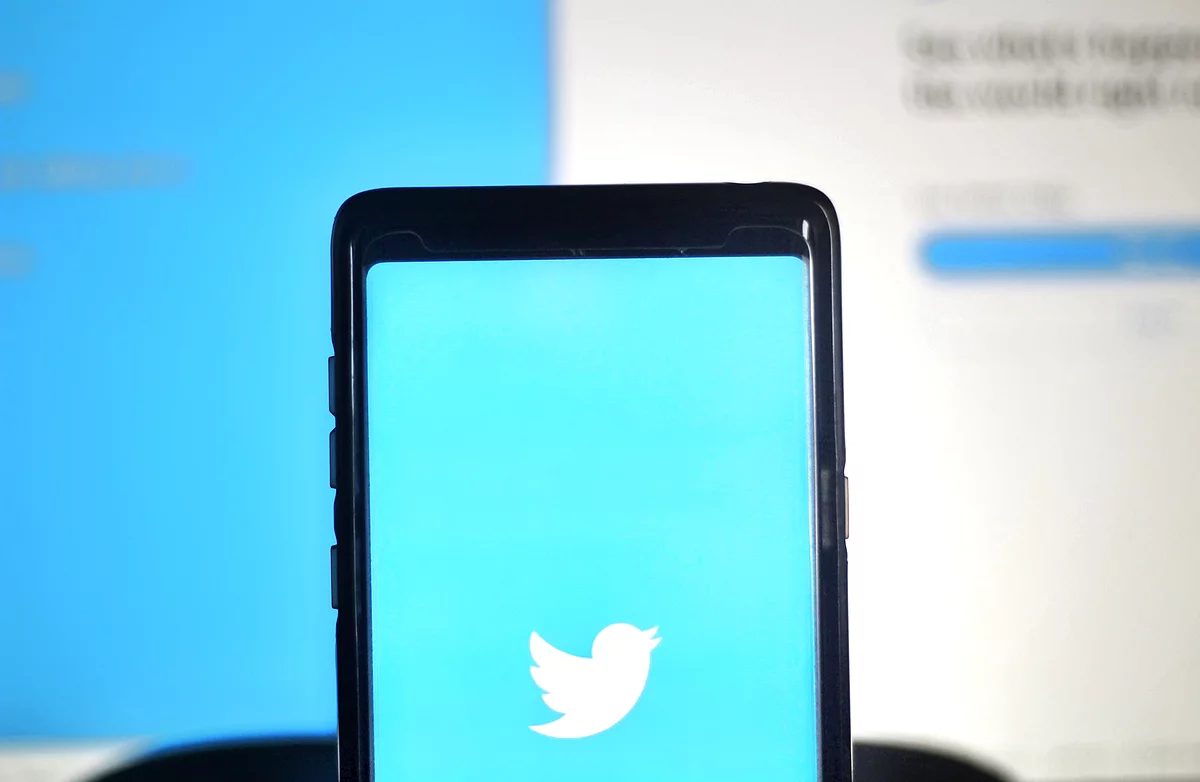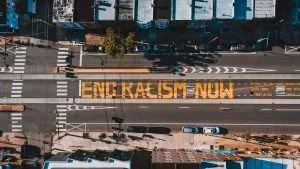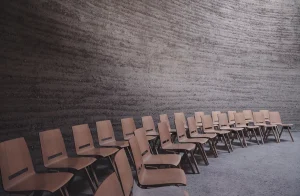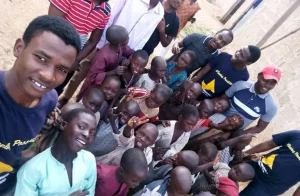Using Sociology Twitter to Teach Students
This part of the story of @SociologyTheory outlines different sociology Twitter assignments used in classes between 2017 and 2019. I have previously written about The Story of @SociologyTheory: Origins and Initial Reviews.
I had been explicitly using @SociologyTheory to research pedagogy, learn how to teach, and actually teach other instructors about teaching and yet, my experience seemed to lack value to others at Purdue. In the Spring of 2017, though, @SociologyTheory would experience a revival as I was assigned my first teaching position, an Introduction to Sociology course. At this point, I knew I was going to use @SociologyTheory in my syllabus, but it was the first time I would be able to design a course without IRB guidelines. For this reason, I used @SociologyTheory in a variety of ways from the Spring of 2017 to Summer 2019.
Introduction to Sociology – Fall 2017
Whether they knew it or not, the students in my first intro class really helped me get a sense of who I was as an instructor and how I wanted to use technology in my classroom. I began the semester with open and vague instructions similar to those I used with Kelly where students individually posted to Twitter throughout the week. I quickly realized that I could use social media to challenge students in a different way. Thus, I almost completely overhauled my syllabus midway through the semester, leading to a couple of critical reviews on my evaluations.
“Luke did not stick to the original rubric very well, so at times it was difficult to understand what was due, when it was due, and what was expected from the students. I think moving forward, Luke needs to plan ahead better and account for course content changes in the original syllabus.”
Anonymous Student
I was uncertain when I would teach again, and I really wanted to try a more guided social media assignment, so the transition was worth the risk. The new course design involved spending one day a week in groups. I asked those with devices to bring those in and I gave each group a topic related to the week’s course subject. For instance if the week’s subject was race and ethnicity, then I might task groups with prompts such as immigration, Native American Mascots, or mass incarceration. Students would have to research their topic, write a blog about the topic, and construct a Tweet demonstrating findings from their research. Students submitted a journal consisting of all the group blogs, as a final project.
Despite the couple of critical comments, reviews for my first course were strong.
“The class was highly interesting and involved a lot of group conversation that I liked. I find it very interesting to hear other people’s opinions even though I may disagree with them. Our professor did a great job at entertaining us with either stories or setting a background story for us to apply sociological principles to. He was also very good at communicating with us through e-mail, and made sure to answer any questions we may have. Overall I don’t think this professor was bad at anything and he was very good about explaining information.”
Anonymous Student
“I really liked the group work and working together to find information and learn about the world and technology that way.”
Anonymous Student
“I like the twitter blogs!”
Anonymous Student
Introduction to Sociology – Spring 2018
I was fortunate to receive a teaching position for a consecutive semester (and several to come) where I could iron out the details of changes I had made mid-semester in the Fall. In the midst of fortifying my new course design, I decided to challenge students even more. For the first several weeks of the class, students were asked to Tweet individually as everyone got accustomed to the platform. Then, once I had covered some theoretical and methodological basics, I grouped students into several groups representing different sociological perspectives. For instance there were groups titled positivism, constructionism, and transformativism/critical theory (all covered in the course). There were also groups titled conflict theory and symbolic interactionism. I have used various other “sociological perspectives” as group themes.
For the next few weeks, students had the same task of researching a given topic, writing a blog, and constructing a Tweet, but this time they needed to accomplish those tasks through the lens of their group’s sociological perspective. For example if the topic was Health in the US, then one group would take a symbolic interactionist approach, one would take a positivist, and so on.
The final few weeks of the semester I would strategically ask groups to collaborate. The point was for them to be able to discuss the differences and similarities in, for example, positivism and constructionism, or macro-level constructionism and symbolic interactionism.
My Intro to Sociology course in Spring of 2018 was the first time that I received rave reviews reminiscent of my time with Kelly. It is important to note that I accredit many of the personal compliments toward me and comments perceiving the class as “easy” to the course design. Students learn a great deal of complex information in my courses, even if they think it is easy (See previous comments on comparing research paradigms in an intro course).
“At first, I was skeptical about the set up of this course. Now that it has ended I do feel that I learned a lot this semester. This class gave me new perspectives and a better understanding of the workings of people and how it is all interconnected. I really like the twitter log as a group and do think the groups were well done to identify what people were wanting to work on.”
Anonymous Student
“Great instructor, good class structure.”
Anonymous Student
“I loved the way he taught the course! Very creative with using Twitter, but it ended up being a very unique experience. The class was very low-stress, which was awesome, considering that I had other classes that required a ton of my time. I also liked the topics a lot”
Anonymous Student
“I really enjoyed the usage of twitter in this class. I thought it was interesting and unique, and was a good idea for a sociology class.”
Anonymous Student
“Luke is a very personable sociologist. He seems to genuinely care about his students and their understanding of certain topics. He also makes sure to create a free speech atmosphere where we can convey our thoughts. This course has helped me understand the intelligence of my fellow classmates. It was very therapeutic to hear other students being genuine about their understanding of how society works and what they believe we should or should not implement. The classroom was very interactive and we applied sociology through the use of language, lecture, and social media platforms on a daily basis.”
Anonymous Student
“Luke is a great professor! I love how class is conducted and how he is teaching sociology in a way that is relevant to our society and is making the classroom technology friendly and very interactive. 10/10 recommend this class.”
“Luke is an outstanding instructor. He provides information in a way that inspires students to engage and be involved in the subject at hand. Luke provides many extra credit opportunities to further encourage involvement in the course. The classroom environment is always conducive to learning and we use different methods ranging from lecture, to group work, to guest or student led activities – this keeps the class interesting and fun. I highly recommend this instructor to other students and I would enjoy taking another course from him.”
Anonymous Student
“Makes class interesting and with the different groups, fun to learn.”
Anonymous Student
Racial and Ethnic Diversity – Summer 2018
My past research and teaching experience prepared me well to teach a sociology course covering race and ethnicity. I probably assisted Kelly in half a dozen Sociology of Minorities courses at UNCO. Nonetheless this was my first solo course aside from intro, and would also be my first online course.
The course design was based on workbooks where I had constructed a variety of activities students had to complete. Each week, one such activity, was based on the use of Twitter. These activities ranged from deconstructing online discourse to celebrating accomplishments of people of color.
Reviews for this class were positive, but less about the use of Twitter and more about myself. With that said, based on my experience I give credit to the course design for making me appear dedicated. In fact, I was traveling for a portion of the course. Nonetheless, reviews were positive.
“The instructor did an amazing job of telling us that it was okay to express our opinion and was really good at getting back to us if we had questions or concerns.”
Anonymous Student
“Overall a very well taught course.”
Anonymous Student
“My instructor is very well-respecting of different views. In this type of class there will be conflicting views, but my instructor allowed for everyone to display their own views respectfully. Also, my instructor was very detailed. He was detailed in terms of: He included himself in class discussions which benefit the students because he would further elaborate on our conversation and the instructor was very detailed when our classwork was given back to us. The instructor would take the time to thoroughly reply to everyone’s work in a way that made me feel as if yes my instructor really cares about my work which can be difficult to feel over an online class.”
Anonymous Student
“My instructor has an impressive understanding of the material and the course work reflected it. The modules challenged me to think deeper and helped my overall grasp of diversity. I thoroughly enjoyed his class and would recommend others to take it.”
Anonymous Student
“I love the recaps that are given after each workbook because they really seem to tie everything together and give that “ah-ha” moment.”
Anonymous Student
“I like the idea of modules because it gives a clear description of everything that needs to be done in the week”
Anonymous Student
“Amazing prof and course! Great use of social media and discussion board. Good reward system and engagement”
Anonymous Student
Social Problems – Fall 2018
My Social Problems class is the course where I assigned the fewest required Tweets. I assigned only one required post to Twitter on the mid-term evaluation. In this assignment, I asked students to post an opinion (from a sociological perspective) about a social problem, as if, they had enough followers to be considered “dominant discourse.” Essentially pretend you were posting like you had a million or so followers. The rest of the semester we used Twitter occasionally in class when I would ask students to look for discourse on different topics or events.
Once again, I had positive reviews and once again, I attribute a lot of my relatability to the course design, which intentionally puts sociology within the worldview of the average college student.
“Prof. Hanna is a very competent and knowledgeable instructor. He always is prepared and has a clear direction that he wants class to go. He takes time to listen to the concerns of individual students and is willing to work with them in groups or one-on-one to give them help.”
Anonymous Student
“I’ve enjoyed the student presentations more than I’ve expected and I like the class discussion they generate. I also really like how Prof. Hanna teaches us to look at the sociological theories behind issues to understand where different groups of people are coming from on certain issues.”
Anonymous Student
“Such a cool and down to earth guy! I really enjoyed the topics we discussed and he always made the class interesting!”
Anonymous Student
“The instructor is very good at making sure that we understand the material and encourages class discussion about topics that aren’t usually talked about in any other course.”
Anonymous Student
“The teacher was a very good listener. He took into account what everyone suggested and tailored the class to appeal to everyone. Clearly cared about us learning and understanding sociology.”
Anonymous Student
Introduction to Sociology – Spring 2019
In Spring of 2019, I was given an additional challenge. Rather than teach my previously successful version of Intro to Sociology, I was asked to teach a hybrid version where students would meet in-person Monday and Wednesday, and online on Friday.
I did not like the idea of less time in-person to mentor students in appropriately Tweeting from the different sociological perspectives, so I transitioned back to using Twitter in a less structured format. Essentially, it was reminiscent of Kelly’s early assignments with the exception that I asked students to Tweet in such a way that indicated they had completed the week’s readings.
While this semester marked a simpler version of using @SociologyTheory in the classroom, it opened the door for me to expand into using other digital formats in the classroom. For instance, I had three groups of students all create websites on different sociological topics.
While from my perspective my use of Twitter was lacking this semester, it was the first time in a couple semesters where students explicitly mentioned social media in their course evaluations.
“Professor Hanna is very knowledgeable about sociology and goes into great detail in every single lecture. He gives his students time to work on our final projects, and the concept of using Twitter helps reinforce real world issues to sociology.”
Anonymous Student
“Professor Hanna was very enthusiastic about the lessons he taught.”
Anonymous Student
“I liked using twitter for class. It was very helpful and made me do more research on my own.”
Anonymous Student
“I like how he draws out pictures throughout the classes on the board, and I like how he includes Twitter throughout the year to correlate class with topics throughout the world.”
Anonymous Student
“Lucas is amazing!”
Anonymous Student
Racial and Ethnic Diversity – Summer 2019
By this point, I knew that I would be leaving Purdue. Despite that knowledge, I still taught a solid summer course on Racial and Ethnic Diversity. The only shortcut that I took was teaching the exact same online course from the previous semester. This was the only course where I did not prep or re-prep a course before teaching.
Similarly to the previous summer, course evaluations held a positive tone. In fact I received a 5.0 on the “How would you rate this professor” question.
“Professor Hanna’s communication with students was superb. His instructions were always detailed and he posted weekly announcement to check in on students. He also provided individual feedback on all homework. Considering that I took this course 100% online, I was never lost.”
Anonymous Student
“I really like the setup for the class. I’m not a strong test taker so I appreciated not having my grade rely on a test. The instructor responds to emails very fast and is very understanding of mistakes.”
Anonymous Student
“I really enjoyed the idea of social media and discussions because I have never had this in a class before.”
Anonymous Student
“He explained every concept clearly and provide appropriate examples. Using Twitter as a part of assignments is really helpful in understanding the materials.”
Anonymous Student
“Thank you for your hard work this summer! Through this class, I learned a lot about others and how to treat people respectfully.”
Anonymous Student
End of the Purdue Era
I have since moved on from Purdue, but @SociologyTheory lives on. Currently, Stephanie is teaching Social Problems at Purdue. She is using @SociologyTheory similarly to how I used it in the Fall of 2018. It will be interesting to learn about her experience as she makes it her own.
My next online sociology endeavor involved creating this website and working on our new business venture Applied Worldwide, LLC. I will always have a desire to teach so I hope that I am able to bring @SociologyTheory to a classroom somewhere, but I felt it was important to document a story that signifies both the growth of a college instructor and how that experience has been so closely tied to a Twitter handle.
Thank you to everyone who has helped to make this story a reality. From the researchers who helped manifest the idea to the professors, colleagues, and students who took a chance on my crazy ideas. Nearly all of the content retweeted on @SociologyTheory has been created by students in sociology courses, so thank you to all students who have participated in these digital distractions. Finally, thank you to any followers who have engaged with students over the years. As evidenced in this story, @SociologyTheory has gone through a wide variety of uses, many of which were likely confusing for followers, so again, thank you.







